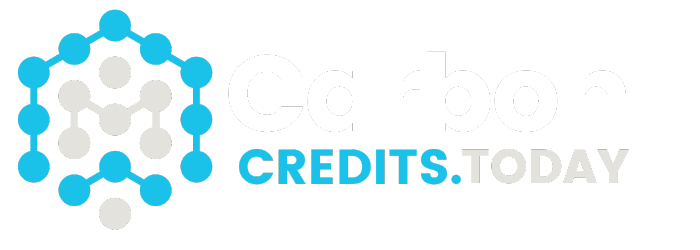The growing emphasis on sustainability and climate action has increased demand for professionals skilled in carbon management, particularly carbon brokers and auditors. These roles are critical in helping organizations navigate carbon markets, reduce emissions, and comply with regulatory frameworks. To excel in these fields, individuals must acquire specialized knowledge through targeted classes, certificates, and courses. This article provides recommendations for educational programs that equip aspiring carbon brokers and auditors with the technical expertise, industry insights, and practical tools needed to succeed. From foundational courses to advanced certifications, these resources are designed to prepare professionals for the complexities of carbon trading, auditing, and sustainable business practices.

Recommendations for Classes, Certificates, and Courses for Aspiring Carbon Brokers and Carbon Auditors
1. Understanding the Role of a Carbon Broker and Carbon Auditor
To excel as a carbon broker or carbon auditor, it is essential to understand their roles. A carbon broker facilitates the buying and selling of carbon credits, while a carbon auditor verifies and ensures the accuracy of carbon emissions data. Both roles require a strong foundation in environmental science, carbon markets, and regulatory compliance.
| Role | Key Responsibilities |
|---|---|
| Carbon Broker | Facilitate carbon credit transactions, market analysis, and client consultation. |
| Carbon Auditor | Verify emissions data, ensure compliance with standards, and prepare audit reports. |
2. Essential Skills for Carbon Brokers and Auditors
Developing the right skills is crucial for success in these fields. Key skills include data analysis, regulatory knowledge, communication, and project management. Courses that focus on carbon accounting, sustainability reporting, and climate policy are highly recommended.
See Also I've Just Completed a Video on Carbon Credits for My Decarbonize! Channel That I Thought This Group Would Appreciate.
I've Just Completed a Video on Carbon Credits for My Decarbonize! Channel That I Thought This Group Would Appreciate.| Skill | Importance |
|---|---|
| Data Analysis | Critical for interpreting emissions data and market trends. |
| Regulatory Knowledge | Ensures compliance with local and international carbon regulations. |
3. Recommended Courses and Certifications
Several institutions offer specialized courses and certifications for aspiring carbon brokers and auditors. Look for programs accredited by recognized bodies such as the International Emissions Trading Association (IETA) or the Greenhouse Gas Management Institute (GHGMI).
| Course/Certification | Provider |
|---|---|
| Carbon Accounting and Management | GHG Management Institute |
| Carbon Markets and Trading | IETA |
4. Online vs. In-Person Learning Options
Both online and in-person learning options have their advantages. Online courses offer flexibility, while in-person programs provide networking opportunities and hands-on experience. Choose based on your learning preferences and career goals.
| Learning Mode | Benefits |
|---|---|
| Online | Flexible schedule, access to global resources. |
| In-Person | Networking, hands-on training, and direct mentorship. |
5. Building a Career Path in Carbon Brokerage and Auditing
To build a successful career, start by gaining relevant experience through internships or entry-level positions. Pursue advanced certifications and stay updated on industry trends and regulatory changes. Networking with professionals in the field can also open doors to new opportunities.
See Also Cambodian Offset Project Led to Arrests, Evictions of Indigenous People, Report Alleges
Cambodian Offset Project Led to Arrests, Evictions of Indigenous People, Report Alleges| Step | Action |
|---|---|
| Gain Experience | Internships or entry-level roles in sustainability firms. |
| Advanced Certifications | Pursue specialized certifications to enhance expertise. |
Essential Training and Certification Pathways for Aspiring Carbon Brokers and Auditors
1. Understanding the Role of a Carbon Broker and Carbon Auditor
To excel as a carbon broker or carbon auditor, it is crucial to first understand the roles and responsibilities associated with these professions. A carbon broker acts as an intermediary between buyers and sellers in the carbon market, facilitating the trade of carbon credits. On the other hand, a carbon auditor is responsible for verifying and validating the accuracy of carbon emissions data, ensuring compliance with regulatory standards. Both roles require a deep understanding of environmental policies, carbon accounting, and market dynamics. Aspiring professionals should seek foundational courses that cover these topics to build a strong knowledge base.
2. Key Certifications for Carbon Brokers and Auditors
Obtaining the right certifications is a critical step in establishing credibility and expertise in the field of carbon trading and auditing. Some of the most recognized certifications include the Verified Carbon Standard (VCS), Gold Standard, and ISO 14064 for carbon accounting. These certifications not only validate your skills but also enhance your employability in the competitive carbon market. Additionally, certifications like the Greenhouse Gas Management Institute (GHGMI) offer specialized training programs that are highly regarded in the industry. Investing in these certifications can significantly boost your career prospects.
3. Recommended Courses for Carbon Market Fundamentals
For those new to the field, enrolling in courses that cover the fundamentals of the carbon market is essential. These courses typically provide an overview of carbon trading mechanisms, regulatory frameworks, and the role of carbon credits in mitigating climate change. Institutions like the University of Cambridge and Stanford University offer online courses that delve into these topics. Additionally, platforms like Coursera and edX provide accessible and affordable options for learning about the carbon market. These courses are designed to equip you with the foundational knowledge needed to navigate the complexities of carbon trading and auditing.
See Also Which Carbon Credits Should I Trust - as I Am Looking to Invest in a Long-Term Genuine Project
Which Carbon Credits Should I Trust - as I Am Looking to Invest in a Long-Term Genuine Project4. Advanced Training in Carbon Accounting and Reporting
As you progress in your career, advanced training in carbon accounting and reporting becomes indispensable. This involves learning how to measure, manage, and report greenhouse gas emissions accurately. Advanced courses often cover methodologies for calculating carbon footprints, developing emission reduction strategies, and preparing reports for regulatory compliance. The Carbon Disclosure Project (CDP) and the World Resources Institute (WRI) offer specialized training programs that focus on these advanced skills. Mastering these areas is crucial for anyone aiming to become a proficient carbon auditor or broker.
5. Networking and Professional Development Opportunities
Building a strong professional network is vital for success in the carbon market. Engaging with industry experts, attending conferences, and joining professional organizations can provide valuable insights and opportunities. Organizations like the International Emissions Trading Association (IETA) and the Climate Markets & Investment Association (CMIA) offer memberships that include access to exclusive events, resources, and networking opportunities. Additionally, participating in webinars and workshops hosted by these organizations can help you stay updated on the latest trends and developments in the field. Networking not only enhances your knowledge but also opens doors to potential career advancements.
Frequently Asked Questions (FAQ)
What are the best courses to become a Carbon Broker or Carbon Auditor?
To become a Carbon Broker or Carbon Auditor, it is essential to pursue specialized courses that focus on carbon markets, emissions trading, and sustainability. Some of the top recommendations include the Carbon Management Certificate from the University of Edinburgh, which covers carbon accounting and reduction strategies. Another excellent option is the Professional Certificate in Carbon Accounting offered by the Greenhouse Gas Management Institute. Additionally, courses like the Carbon Finance Program by the World Bank or the Carbon Markets and Climate Policy course by the International Emissions Trading Association (IETA) provide in-depth knowledge of carbon trading mechanisms and regulatory frameworks.
Are there online certifications available for Carbon Brokers and Auditors?
Yes, there are several online certifications tailored for aspiring Carbon Brokers and Carbon Auditors. Programs such as the Verified Carbon Standard (VCS) Training and the Gold Standard for the Global Goals offer comprehensive online modules. The Greenhouse Gas Management Institute also provides flexible online courses, including the Carbon Accounting and Management certification. These programs are designed to accommodate professionals who need to balance their studies with work commitments, offering self-paced learning and interactive resources.
What skills are required to excel as a Carbon Broker or Carbon Auditor?
To excel as a Carbon Broker or Carbon Auditor, you need a combination of technical and soft skills. Key technical skills include a strong understanding of carbon accounting methodologies, familiarity with emissions trading systems, and proficiency in using tools like GHG Protocol and ISO 14064 standards. Additionally, analytical skills to interpret data and regulatory knowledge are crucial. On the soft skills side, effective communication, negotiation, and project management are vital for collaborating with stakeholders and ensuring compliance with environmental regulations.
How can I gain practical experience in carbon brokering and auditing?
Gaining practical experience in carbon brokering and auditing can be achieved through internships, volunteering, or working on real-world projects. Many organizations, such as environmental consultancies, carbon trading firms, and sustainability-focused NGOs, offer internship programs that provide hands-on experience. Additionally, participating in carbon offset projects or joining professional networks like the International Carbon Reduction and Offset Alliance (ICROA) can help you build connections and gain insights into the industry. Some certification programs also include case studies and simulations to enhance practical understanding.
Leave a Reply


Our Recommended Articles